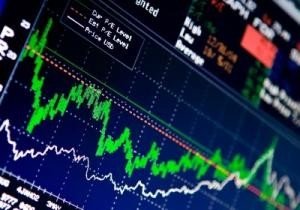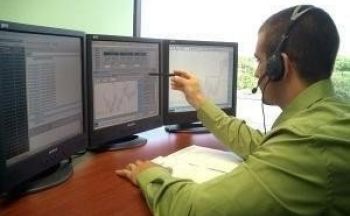Risks in commodity trading
Commodities as an investment product has an inherent durability. Yet there are risks associated with commodity trading in terms of investment and trading in commodities.

Is commodity trading risky?
All financial trading is not only the underlying for investment that are essential for the risk, but the type of investment terms used.
If you don't want to get screwed or scammed you should stick to safe and popular brokers like this one.
All investments are made to high-risk investment, for example, to trade with borrowed money (leverage). Similarly, the risk of investment and trading reduced form of stop-loss strategies, hedging and other techniques. and therefore not meaningful to discuss whether commodity trading itself is risky, as this depends entirely on the type of investment in question.
What impact has the market on commodity prices?
Although market forces do not affect the raw materials in the same way as stocks, the market is still of significance.
Let's take an example: If an investor has allocated a significant portion of their portfolio to a particular commodity, such as grain, and a biological blight destroys crops for an entire month on one continent, the difference between expected Results of the item and the grim reality lead to investors losing substantial amounts of money (of course depending on the types of contracts that investor is assured).
The foregoing is admittedly not an automatic loss for the investor. Consider the following scenario. If the biological disease granular originated in Europe, but investors had speculated unusually high demand for futures in the U.S., the investor would actually have reaped a huge profit from their investment as Europe's lack of supply would have forced the continent to import grain from other countries. Europe's significant demand would boost corn prices in the U.S., and thus dramatically increase performance over industry expectations.
Let us take an example of a reverse scenario, it may be equally likely. This same investor has invested in high availability for grain via futures in Europe. When menkornsykdom occurs, decreases the availability significantly. If the investor bought futures, unlike options on it, he will be required to sell their futures at a predetermined date for an agreed value. When he tries to sell European corn futures at huge demand, he will lose a lot of money because the market simply does not match the expectations of these futures.
In each case, there is really no way for investors to know about the grain will experience high security of supply and high demand in Europe when he enters into a futures contract or option agreement. In this way, commodity trading be a risky investment, because materials exposed to natural disasters and other events that no one can predict with certainty.
Reducing risk in commodity trading
There are always ways to reduce the risk of commodity trade. In each version of the scenario outlined above, selected investor futures that required the market to behave in unusual ways. It should be noted that investors can choose to invest in commodities with high volatility to increase the chance of gain, but that this strategy can also backfire and result in huge losses. Many commodities have low volatility, rank, and therefore behave in a fairly predictable manner. Moreover, there are many different ways to invest in commodities.
An investor should consider the utility of specific financial tools he uses to buy goods, such as futures compared to alternative forms of investment. Any investment form constitutes its own risks, from the amount of the initial investment at the agreed date of sale. Commodities can be a great investment, but a certain degree of risk is always part of every transaction.
No commodity market has a certain outcome, because no one knows the future. Therefore, it is important to have some precautions. Commodity trading is exciting and rewarding, and it is significant of money to be made trading of commodities.
Speculation: Why it's wise to trade commodities
Speculation in commodity prices can be a profitable affair if you know what you are doing. It much easier to put into commodity trading than what many think.
Commodities are not based on the profitability of companies or nations. By investing in commodities can achieve good and consistent yields. Take for example gold, it is a commodity that will not disappear or fall drastically in value of the first, as opposed to a share in a large company, who might drop significantly in price.
A stock purchased for 10 dollars today, may be worth zero tomorrow, if the company goes bankrupt. This is not a commodity. A commodity and commodity derivatives can not go bankrupt, such as a corporation.
Many investors and traders choose solely speculating in commodities. Yet it is not only the most hardcore should consider investing in commodities. Commodities Market is also suitable as a form of diversification in a trader's financial portfolio.
Simply by differentiating the types of investments to put money in will eliminate a number of risk factors, and even a severe economic crisis, a diversified trader could survive. Portfolio will survive anyway, unless "the world will end," where every sector of the financial markets are afflicted by an incurable economic catastrophes, which of course is extremely unlikely. Commodity Investments is therefore not only an opportunity for greater returns, but also a way to reduce risk in one's portfolio.
Financial Crisis? Not in commodity
A good example is the recent economic crises of our time. We all remember the financial collapse in 2008: one large global company after another fell. The world's largest and most reliable banks faced serious problems and had to be rescued by the state capital. Titans went bankrupt exchanges, and investors and traders all over the world lost huge sums of money, and many felt that their portfolios were virtually worthless.
Commodity market is to some extent immune to such collapses. The nature of this market makes it so. A commodity in its entirety is not owned by a particular company or nation. Commodities can provide a significant source of income for investors who have spent time to carefully consider the ingredients that it pays to buy. We must be aware of why we choose to buy a commodity, at what price we should buy, when to buy, not to mention at what price we want to sell raw material.
Even those who do not have special thing for commodities can take profit in commodity market. There are commodity indices that contain a variety of financial products based on raw materials, and can be a good solution for those who want to be a passive investor.
speculators who want an active presence in the commodity market is a sea of opportunities.
Try free demo of commodity trading in practice
A good and quick way to get to know the commodity is to test the market with a demo account. Thus you can trade commodities / commodity risk. Such demonstrations are free to use, and you, the customer, agree not usually for anything.
However, it is not expensive to try real money either. Some trading systems you can begin to use with fairly modest deposit amount from the 1000. Some also offer tomorrow analyzes and reports that will help you make the right decisions. It's just nonsense that financial investments are only for experts.
fact, it has been proven time and again that economies are better investors than other professionals who do not have financial backgrounds. In other words nødveidigvis experts to listen to.
Cycles in the commodity market
commodity cycles are caused by supply and demand in the market. So it is market forces that are essential, but behind it is also certain political decisions.
Most countries base the value of their currency only up to the value of currencies of other nations. Today, there is not a single commodity which serves as comparison of currency. At least not playing produce the same role today in relation to the international economy for forty years ago. When the prices of gold and silver key ingredients we could measure up against the currency.
Still, gold prices of significance to this day. If gold has an extraordinarily high price per ounce in a given year, one can say that the market is flourishing, while if the price drops for several years, the financial analysts often comment that it is a "bear" market.
Commodity trading in different cycles
It is not easy to describe sukluser in commodity trading as there are always exceptions to the rule in relation to a commodity is in the position of bull (rising commodity prices) or bear (falling commodity prices).
The best predictor of whether a commodity is bull or bear, is mainly looking at vareomløpet of the raw material in terms of production volume. In the two decades from 1980 to 2000 has experienced a bear market (falling prices) in commodity trading as production capacity has been great while demand has not been very high.
Around 2000 there was a significant change in relation to the exploration, processing and metallurgy. Nations which had not previously had any special interest for metals, rose now aggressively production, due to a dramatically increased demand for previously appreciated metals such as zinc and copper. This sudden interest in metals led to increased demand for gold and silver. This in turn meant that investors interpreted the demand for zinc and copper as the beginning of a bull market (rising prices)
amount of certain raw materials is thus often a predictor, or at least an indicator, bull and bear cycles.
Commodity market is very complex
Take oil as an example, and how this might affect commodity prices in a number of other ingredients:
Oil prices often fluctuate based on the amount of raw oil is recovered, simply because so many other industries are dependent on energy from the oil industry. As an example, a steep drop in oil production resulting in higher gasoline prices, which in turn affects the transport of agricultural products. This allows artificial constraints in supply and demand, and can affect the overall prices of other commodities. Oil has often fluctuations in its offer, and many experienced commodity investors and traders anticipate some seasonal fluctuations, and can adapt these to seasonal cycles in their investments. Such secondary effects therefore somewhat predictable portion of commodity trade.
However, it should be noted that since many commodity indices are based on the expected performance. Nevertheless, extreme changes in production quantity eg. oil or an important commodity corresponding lead to changes in the futures market.
fact, a completely unexpected decline in oil trigger a bull market. And contrary to oversupply tends to saturate the market, and thus laid the foundation of a bear market.
As a rule, only the major global events of material importance and that will affect demand. A natural disaster such as an earthquake or tsunami, for example, lower production volume one place and thus increase demand and production somewhere else, so that commodity prices may fall as well as rise simultaneously in two different parts of the world - while the overall commodity price remains unchanged.
Not necessarily difficult to invest in commodities
The important thing to learn in commodity trading is finding its own strategy. One need not even learn much about how commodity markets work. It may be enough to put himself into some methods of technical analysis and act based on certain signals.
We recommend that if you want to learn commodity trading, you can start to create a practice account so you can see how commodity trading works in practice.



